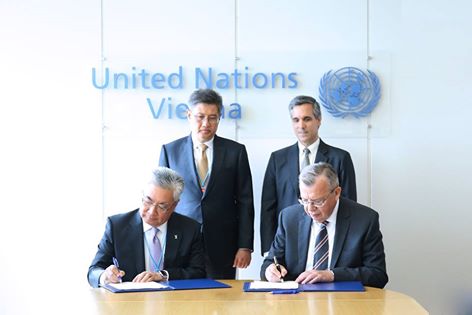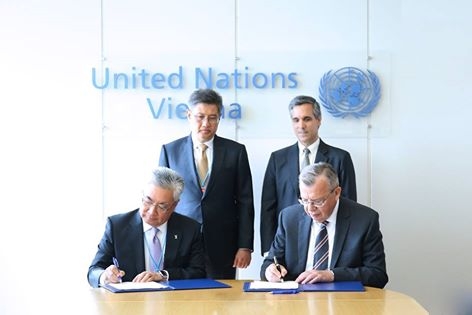On 24 May 2016 Dr. Kittipong Kittayarak, TIJ Executive Director, and Mr. Yury Fedotov, UNODC Executive Director and Director-General of the United Nations Office in Vienna (UNOV), signed the memorandum of understanding (MoU) between the two organizations at the United Nations Office in Vienna during the 25th Session of the Commission on Crime Prevention and Criminal Justice (CCPCJ).

Crime Prevention and Criminal Justice Programme Network of Institutes (PNIs)
The UN Crime Prevention and Criminal Justice Programme Network of Institutes (PNIs) was established in the early 1990s by the Secretariat of the United Nations. Consists of the UNODC and many interregional and regional institutes, as well as specialized centres, the PNIs has specific mandates to assist the international community in strengthening co-operation in the crucial area of crime prevention and criminal justice. The institutes are impartial in nature, and a high emphasis is placed on their ability to utilize the expertise and coordinate their efforts when called upon to work on matters that are often highly sensitive, such as justice and security. With TIJ’s official recognition, there are now 18 PNI members worldwide working to provide a variety of services, including the exchange of information, research, training, technical assistance and public education to the UN Member States.
The new status of TIJ as a PNI member will support the contribution of the Thai government to the strengthening of ASEAN community. As the first ASEAN institution to join the PNI network, TIJ is in the position to influence policies and cooperation on crime prevention criminal justice as well as promote technical assistance programmes in the region. Such membership will also allow Thailand to tap into the vast knowledge pool of leading research and academic institutions in the network, in order to enhance the capacity of criminal justice personnel and support justice system reform efforts in accordance with international standards.




